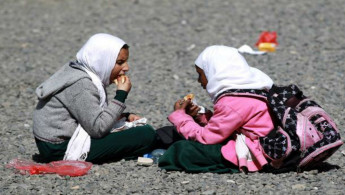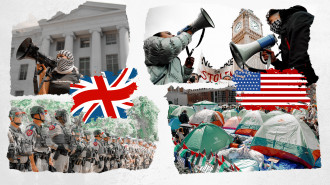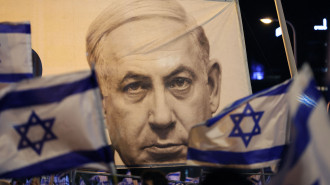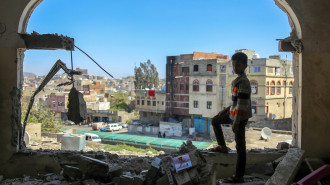Yemeni education disrupted in upheaval of war
The generally poor security situation and the Saudi-led Operation Decisive Storm in Yemen has had a massive and negative impact on the country's education sector. UNICEF, the United Nation's Children's Fund, recently estimated that more than one million out of six million children in Yemen cannot return to school because of the fighting.
At the beginning of 2015, the Yemeni government announced this year would be the "year of education", yet in the southern provinces of Aden, Lahej and al-Dhale, fierce battles have led to the closure of many schools, some of which have been turned into military barracks, while indiscriminate shelling has destroyed others.
| We knew war was near, so I stopped my four children from going to school, because I believe their lives are more important. -Mohammad Ghaleb |
Mohammad Ghaleb, a resident of Lahej, said his children had not been to school in more than two weeks, after Houthi militants and loyalists of former President Ali Abdullah Saleh went to Aden via al-Dhale and Lahej.
"We knew war was near, so I stopped my four children from going to school, because I believe their lives are more important," said Ghaleb. He said they can make up for it next year if the situation becomes stable.
In the capital city of Sanaa and its neighbouring areas, the Ministry of Education announced the closure of schools for a second consecutive week. The Ministry had announced the continuation of school activity when the military operation started, but when many parents refused to send their children to schools, it suspended school activities for one week, followed by an extension until next Thursday.
In more stable areas, people have also stopped their children from going to school. For example, the central province of Ibb, under Houthi control, has been relatively calm, but some students still do not go to school, according to Mashhour al-Salmi, director of personnel at the Education Office in al-Mashannah District.
Salmi says that schools would continue to operate despite the absence of some students. "Ibb is calm and away from the armed battles, but some families still fear for their children, especially after the bombing of a cultural centre last December, which killed many students," he said.
He also denied rumours that the ministry had cancelled final exams due to the current events. "Schools will continue to operate and exams will be held on schedule unless the Ministry in Sanaa says otherwise," he added.
Under fire
The displacement of people living in cities under fire deprived many children of their right to education. Thus, the Ministry of Education obliged all its offices across the country to enrol the displaced students, allowing them to take their exams where they moved if the situation remains dangerous in the areas they came from.
A source in the ministry, speaking on condition of anonymity, said that the ministry is trying to ensure continuity of the educational process despite the circumstances, adding that education is a right, and that the lack of it would negatively impact the lives and futures of children.
"The ministry authorised its offices in provinces under fire to make any decision needed to determine the study period, while ensuring the continuation of the educational process," the source said. "Palestinians go to school in worse circumstances and under fire because they are aware of the importance of education."
The source added that the ministry's head office was unable to determine which schools were destroyed by the shelling or occupied by armed groups in southern provinces, as happened in Aden, Lahej, and al-Dhale. He also added that the ministry's branches in said provinces had refused to deal with the head office since Hadi moved to Aden after Houthis took over state institutions, including the Ministry of Education.
Angry teachers
| The ministry's head office is unable to determine which schools have been destroyed by the shelling or occupied by armed groups. |
A number of teachers expressed their concerns regarding the continued suspension of school activity in Sanaa, saying that they would "bear the consequences of such decision."
Mohammad al-Absi, a teacher in a public school, said he was preparing himself to give students intensive lessons in order to help them catch up. "This will be difficult for both the students and the teachers." He added that some teachers did not comply with the ministry's curriculum due to the long suspension of education, which negatively affected the students.
"Usually, students get excited about long vacations, but at the end of the school year. We have to deal with the consequences of staying at home for long periods of time without studying due to wars and armed conflicts," said Ismail Muthanna, a student. "Many teachers are giving intensive lessons toward the end of the school year, which can be too much for the students."
UNICEF representative in Yemen Julien Harneis had urged the government earlier to "clear schools from foreign objects and non-explosive materials that may pose a danger to the children."
"Efforts must be made to guarantee the reopening of schools as soon as possible for children to return to their studies," said Harneis. "Schools must be secured in order to guarantee a proper learning environment, free of any political of security threats."
This is an edited translation from our Arabic edition.



